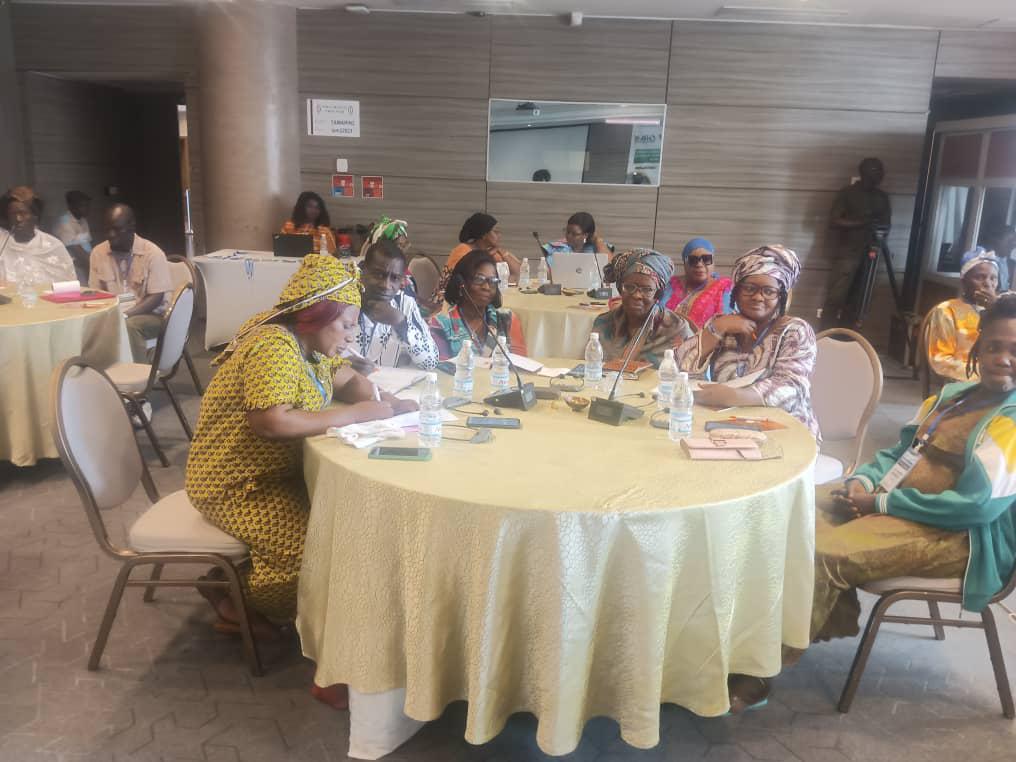News
CORAF is an important organization working to improve food and nutrition security in West Africa. CORAF's recent initiatives are a promising sign of its determination to meet the challenges facing West Africa.
Increasing the supply of quality seeds in West Africa

Published on: 24/06/2024
CORAF, together with the Centre national de recherche agronomique (CNRA) and the Réseau Ouest et Centre Africain des Femmes Entrepreneurs Semencières (ROCAFES), organized regional training for women and young people on seed production techniques and seed business management in the West African coastal zone, from May 28 to 30, 2024 in Côte d'Ivoire. The main objective was to build the capacity of women's and young people's agricultural enterprises and organizations in the multiplication, processing, marketing and management of seed enterprises, in order to increase the country's supply of quality seeds and boost women's and young people's entrepreneurship in the seed sector.
Regional seed production training for women and young people
A total of 38 participants from Côte d'Ivoire, Togo, Guinea-Conakry, Gambia, Liberia and Sierra Leone took part.
" The importance of seed is well established. It has a major influence on crop yields. We hope that the results of this training will equip participants with knowledge in the multiplication, processing and marketing of quality seeds. These brave ladies will find it easier to set up new seed companies and improve their management", remarked Pr Mauricette Ouali N'Goran, Vice-Chairwoman of CORAF's Scientific and Technical Committee, lamenting the inadequate availability of quality seed, estimated at 70% in West Africa.
For her part, Emilienne GUEI, the Côte d'Ivoire focal point of the West and Central African Network of Women Seed Entrepreneurs (ROCAFES), welcomed the training, which was initiated as part of the CAADP-XP4 project and will, she said, enable members of her organization to build their capacities " and better organize themselves to effectively tackle the challenges of quality seed production ". " There's no doubt that ROCAFES will succeed in its mission... Well, the women of ROCAFES want to make the seed sector an effective catalyst for the economic development of their respective countries in Africa ", said Ms. GUEI.
A total of five modules were delivered;
- Module 1: Overview of seed production in the ECOWAS region.
- Module 2: Seed quality control and compliance with regional seed certification schemes.
- Module 3: Production, drying, processing and storage of quality seeds.
- Module 4: Efficient management of seed companies and marketing.
- Module 5: Organization for the Humanization of Business Law in Africa (OHADA).
The training was marked by plenary presentations and exchanges between participants. Numerous experiences were shared by participants from 6 West African countries.
" Seed is the most important agricultural input. For productive and sustainable agriculture, you need quality seeds, and this challenge must be met by these women's and young people's enterprises," recalled Amadou Moustapha BEYE, expert in strategic development and value chains, and consultant trainer at the training workshop.
Two presentations were made by CORAF during the training course. One was given by Ms Deguene POUYE, a specialist in gender issues, on taking gender into account in the seed sector, and the second by Dr Caroline SOBGUI on scaling up technological innovations.
The main aim of this training was to build the capacity of women's and young people's agricultural enterprises and organizations in seed multiplication, processing, marketing and management, in order to increase the country's supply of quality seeds and encourage entrepreneurship among women and young people in the seed sector.
Training recommendations
As a roadmap, the workshop recommended continuing to raise stakeholders' awareness of the existence of the ROCAFES network, lobbying the government on the importance of quality seeds and funding seed companies and research for the production of quality seeds. Finally, the scaling-up of training skills by participants in their own countries was also a strong recommendation of the workshop.
Other news
View allTowards a strengthening of CORAF's actions in...
A delegation from CORAF, led by its Chairman of the Board, Dr Kalifa TRAORÉ, its Executive Director, Dr Moumini SAVADOGO, and its...
A strong plea for African women entrepreneurs...
Many women in West and Central Africa live in an unfavorable environment, with limited access to information,...
CORAF strengthens its partnerships in Burkina Faso...
As part of its mission to strengthen institutional and technical collaboration, a delegation from CORAF, led by its Director,...
Training today's and tomorrow's researchers:...
When AMABA Akéta Akpadji Rébecca completed her Master's degree in Plant Biology in Togo, she was faced with uncertainties about...